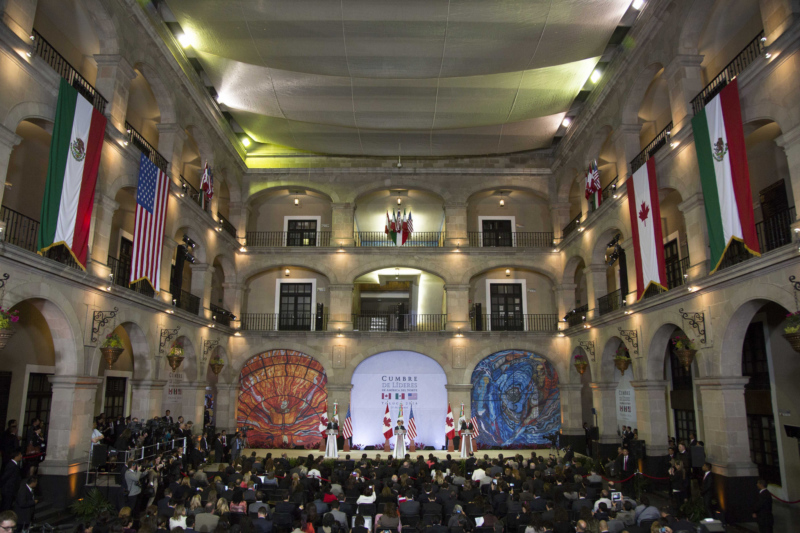What Do the US Election Results Mean for Latin America?
What do the election results mean for hemispheric policy and foreign relations?
Mexico’s energy reform has led to a remarkable boost in investment, and the expected increase in the country's crude oil production will strengthen energy security not only for Mexico but also at the regional level. This was the message of Aldo Flores, deputy secretary of hydrocarbons of Mexico and Carlos de Regules, executive director of Mexico’s Energy and Environmental Security Agency (ASEA), at a private briefing for congressional staffers organized by the Inter-American Dialogue on April 6th with honorary co-hosts Rep. Eliot Engel (NY-16) and Rep. Ileana Ros-Lehtinen (FL-27).
Since the energy reform was approved in December 2013, 48 new operators from 14 countries have entered Mexico, pledging almost $49 billion in investments, said de Regules. Nine of these are US companies, which have invested $6.5 billion, or 13%, of total investment in oil licensing rounds so far. In March, ASEA published regulations for unconventional oil and gas production, and Mexico plans to auction areas with shale potential later this year. These investments are likely to give oil production in Mexico – which has been in decline for more than a decade – an important boost.
But the reform remains highly contentious in Mexico and the leading contender for the 2018 presidential elections, Andres Manuel Lopez Obrador, opposes the legislation. Flores likened the reform, which required support from a two thirds congressional majority, to proposing changes to the second amendment in the United States. Though the reform has been highly politicized within Mexico, de Regules noted that the country's institutional structure ensures that regulatory agencies maintain an appropriate distance from the executive branch. Though many regulators are appointed by the president, their terms do not align with presidential terms, so commissioners from prior administrations remain in place for part of each president's term.
The speakers also emphasized the importance of US-Mexico energy integration to increase energy supplies and improve energy security for both countries. Mexico is the single largest market for US natural gas and oil products exports. The country receives 60 percent of US natural gas exports and 20 percent of US oil product exports. The US also imports large volumes of Mexican crude each year. De Regules argued that an aligned regulatory framework with common environmental standards on both sides of the border creates a predictable regulatory environment favorable to investment for both countries. The administration of US President Donald Trump has proposed reducing regulations in the US oil and gas sector, while in Mexico regulations are considered by many companies to be overly complex. The United States and Mexico cooperate on a number of safety and environmental regulatory issues. The bilateral relationship involves technical cooperation with the Department of the Interior and the Bureau of Ocean Energy Management, among other bodies, and drills in conjunction with the US Coast Guard to prepare for potential accidents.
Looking forward, both officials believed there was an opportunity for further integration between the two countries, though proposals from the White House and US Congress to renegotiate NAFTA and introduce a border adjustment tax could represent bumps in the road. A border adjustment tax is not free trade and would be harmful, including to US consumers, said Flores, and any adjustments to NAFTA should be kept very simple, cautioned de Regules.
What do the election results mean for hemispheric policy and foreign relations?
The question remains if Mexico has achieved a degree of institutional development consistent with its participation in those organizations.
Focusing on transnational crime is a top priority of the Obama administration’s policy in Latin America.
 Presidencia de la República Mexicana / CC BY 2.0
Presidencia de la República Mexicana / CC BY 2.0